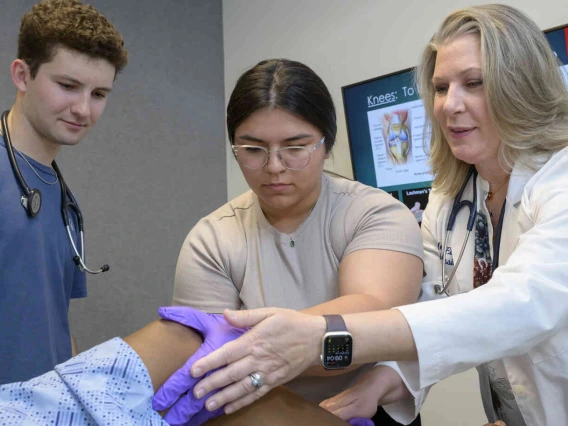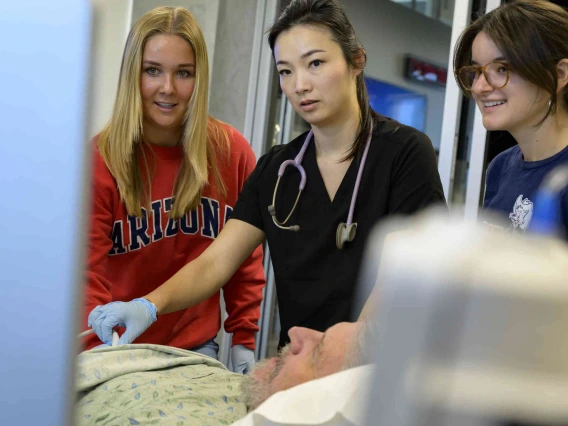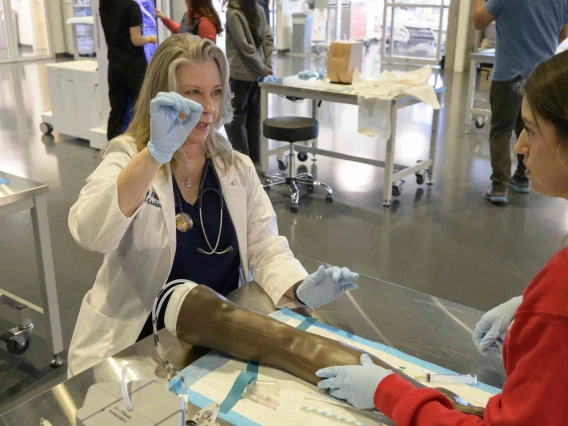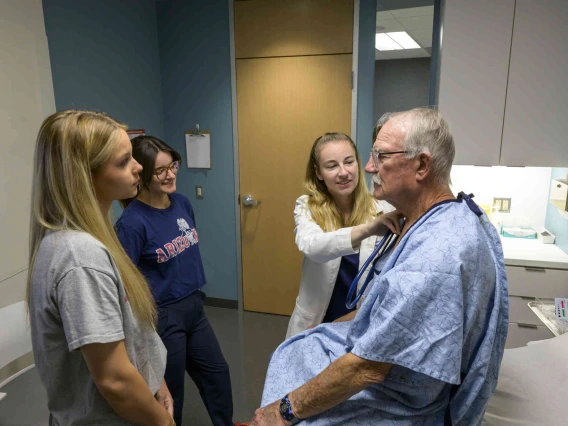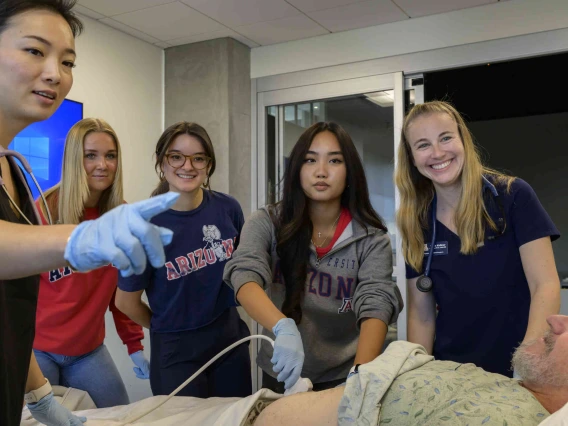Curriculum Overview
The University of Arizona Physician Assistant Program is developing a transformative 26-month Master of Physician Assistant Practice (MPAP) degree program to meet the primary care and rural health needs of Arizonans.
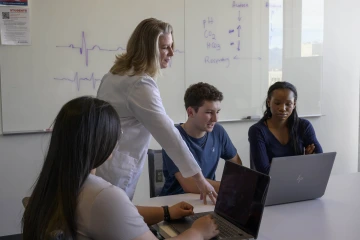
Our overarching goal is to cultivate graduates who excel in delivering person-centered care within primary and underserved rural health environments. With a resolute dedication to bridging health care disparities, we strive to prepare empathetic practitioners who possess adaptability, a collaborative spirit, and an unwavering commitment to enhancing the well-being of the communities they serve.
We prioritize student well-being, aiming for an educational experience that promotes personal wellness and clinical excellence. We take an active and immersive approach to learning that encompasses a diverse range of methodologies to enrich the student experience. This multifaceted approach encompasses dynamic lectures, case-based learning and hands-on applications, including invaluable standardized patient encounters. Our distinguished Interprofessional Clinical & Professional Skills Center (iCaPS) provides an exceptional environment for these experiences. Furthermore, our Arizona Simulation Technology & Education Center (ASTEC), complete with a Makerspace, facilitates the creation of innovative 3D printed models by medical engineers to enhance student learning.
Holistic well-being and student success is prioritized throughout the program, exemplified by a pass/fail curriculum meticulously designed around program-defined competencies that pave the path for student success.
A distinguishing feature of our program is the inclusion of a specialized Medical Spanish requirement, collaboratively taught in partnership with our esteemed Department of Spanish & Portuguese. This unique offering not only enhances communication skills but also equips graduates with culturally sensitive tools to engage diverse patient populations.
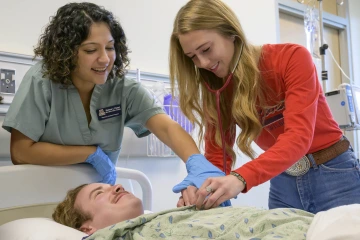
Our curriculum focuses on both intellectual and professional growth for future PAs. The curriculum starts with foundational studies in anatomy and physiology, progressing to clinical medicine, skills and advanced reasoning in a carefully sequenced trajectory. The curriculum structure comprises two didactic semesters during the Fall and Spring, followed by a summer break, and culminating in a final didactic semester. Subsequently, students embark on their clinical education journey across a wide spectrum of settings encompassing rural, indigenous, and urban environments. This diverse exposure fosters a comprehensive skill set, leading to the conferral of a Master of Physician Assistant Practice (MPAP) degree.
We invite health care providers in our community to play a vital role in shaping the next generation of Physician Assistants by serving as preceptors. As a preceptor, you can share your expertise, mentor aspiring clinicians and contribute to the future of health care. Hosting a PA student not only enhances their education through real-world experiences but also brings fresh perspectives and enthusiasm to your practice. Your guidance can inspire their growth while enriching your own professional fulfillment. Together, we can ensure future PAs are well equipped to meet the evolving needs of our patients and communities. If you are interested, please apply online .


